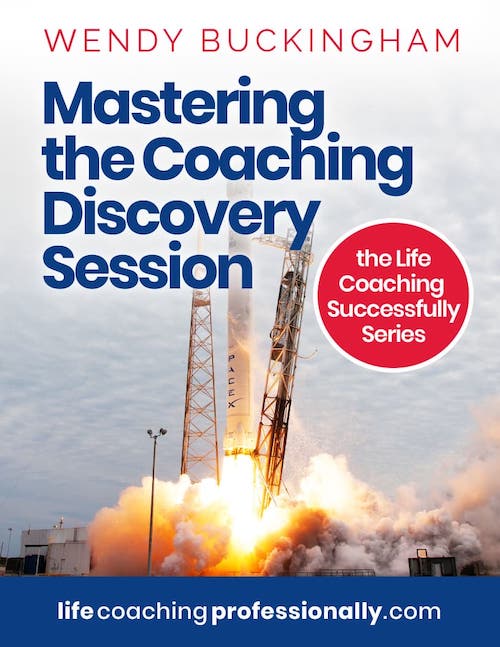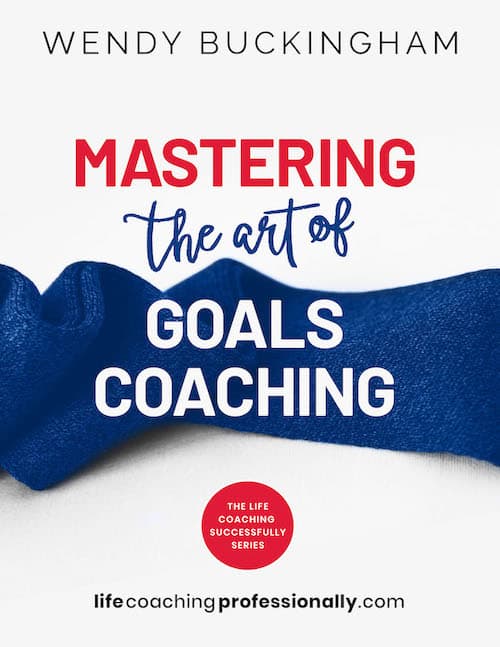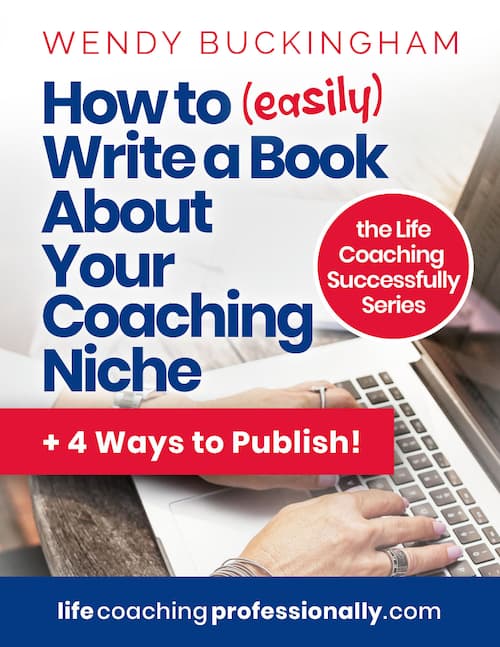- Life Coaching
- Marketing
- Blogging Guidelines
Guest Blogging Guidelines For Life Coaches
Here's what you need to know and do to raise your profile, use your guest blogging articles and comments as a marketing strategy for your coaching and attract interest from potential clients. I'll show you how to effectively contribute to a blog and avoid the time and effort wasting traps.
What is Guest Blogging and What Are the Benefits?
Guest blogging as a life coach is where an you are invited to contribute a relevant article on another website or blog. It's an opportunity to promote your coaching brand and establish yourself as an authority in your life coaching niche.
Guest blogging benefits include:
- The host's audience will be introduced to your coaching services and potential clients.
- Writing for established websites or blogs with many followers can position you as an expert in your field.
- Guest posts help build "do follow" backlinks (a link to you from another quality site), which can improve your search engine rankings.
Quick Links
I may receive commissions at no cost to you. I participate in the Amazon Services LLC Associates Program. More...
Where Do You Find Guest Blogging Opportunities?
These rules and guidelines will make sure you get the best result for your efforts from the host blog you approach and don't waste your time with unproductive blogging.
Ideally you've been invited to be a guest blogger and contribute an article on another bloggers site. How good is that?
Not only does the person inviting you to be a guest blogger think you have something of value to contribute (great for the ego😊), but it's a chance to create beneficial relationships, raise your profile and share your website or FaceBook link.
But not all invitations are worth accepting. You may need to check out a few things before you say "yes".
Conversely, you can approach the host of established blogs you see as relevant and ask if they would like you to contribute an article. Make a few suggestions of articles you think would be useful for their audience.
Whatever your coaching niche or speciality, look to approach established blogs that are related to coaching and have lots of articles on them about coaching.
They will often be hungry for new material to publish for their subscribers.
Coaching at Work and Life Coach Magazine are always looking for new material so it is worth joining their mailing list. Your coaching school or an industry association you belong to that serves your niche, can also be worth approaching.
What Are The Rules for Contributing Articles?
It's great to be invited to have your article someone else's coaching related blog but do some checks before you submit your articles.
Make sure they will enhance rather detract from your professional profile as a coach.Whether you are contributing a full article or a short comment, these guest blogging strategies and guidelines below will help you get the maximum value for your efforts.
1. Write original blog article content:
If you receive an invitation to write a guest article, write something original or at least rework a piece you already have, with a new title, so it is not an absolute copy.
Material that is substantially the same as an article you have already published will not fare well with the search engines and the search results will most likely just display your original article.
Also it's not a good look just to keep contributing the same material for different blogs.

2. Check out the blog where your guest article will appear:
Is this blog or website somewhere you would like to see your name as a professional? Is the site's design and focus likely to bring you visitors to your site?
Also check out amount and quality of comments and interaction on existing articles. Are the posts constructive or do they criticise or belittle?
Does the host add any comments and, if so, are they complimentary.
3. Is the blog current and up-to-date?:
When looking blogs to approach to accept your articles look for one that has current activity. Check when the last article was posted.
A site that has been dormant for even a few months with little new content is often not worth the trouble.
4. How many subscribers or followers does the host blog have?
If you are asked to write an article or are even suggesting one to a host, try and find out how many subscribers or followers there are. This could be a bit of an honesty game with a mailing or subscriber list as, unlike with Facebook followers, there is really no way of checking.
I mention this because, for the best chance of your guest blog being seen and have any real benefit for you, there need to be at least a few hundred subscribers.
However, you may be really keen to contribute to a new website blog because of its quality and relevance, so use your judgement here.
4. Check your blog contributions:
If you do get to submit a full article, ideally ask the host to let you approve any major edits and alterations to you before publication. They may not say yes but it is worth asking! And also take the time to check the article after publication to make sure it is correct and any links work and go where they should.
5. Make your guest blog different: Have a look at the articles already on the blog and come up with something original or a different perspective on something that is already covered.
6. Write your own bio:
Often an article you have written for a website blog will also have a short bio about you. It's wise ask to write and submit your own author bio to the required length needed.
This is so it says what you want, the way you like to express it in a few words, rather than being made up or randomly gleaned and edited from your longer website "about" page.
Also, as I discovered the hard way, bios do go out of date. So if you have made any important changes to how you coach, make sure any bios you have submitted as a guest blogger are still current.
7. Do a link check:
A really important guest blogging rule is regularly keep track or even a record of where your contributed articles have been published and to check any links to make they are still working.
As an example, I recently found an article of mine had been published with an outdated bio and a link to Amazon that didn't work because it went to an old book which is no longer available. Fortunately my checking spotted it and was able to get it speedily corrected.
What about offering to be a guest blogger

Because you want to make sure your guest blogging is a marketing tool as well as adding value, check out Mike Fishbein's Guest Blogging Master Class.
Mike gives more of the low down on using blogging to get more traffic and increase your subscribers and product sales.
How Do You Make Your Comments Powerful?
Much of the content published on coaching and coaching related blogs asks for comments. This is where your guest posts can add in some value and invariably get a link back to a relevant page on your own website or Facebook.
Use these guidelines to make sure your comments are attention getting and have value.
1. Do your research: Look for forums related to life coaching generally, or your particular coaching niche or speciality on FaceBook to see if there is an opportunity for commenting on articles or contributing your own article.
2. Add Value: Don't just write "nice article Fred" or "I agree". or "well said", as I so often see, unless it is all that is really appropriate.
Create a value comment that gives you authority as an expert. Write a paragraph adding some information that may have been missed or even make a correction (politely of course).
3. Don't ramble on: Keep your comment short and to the point. This is a request for a comment not a full article. If appropriate your comment can link to a fuller article on the subject.
4. Be respectful: Even if you strongly disagree with an article or another comment, be polite and respectful adding information rather than make the author wrong. Robust conversation is fine but nasty comments are not a good look for you as a professional.
To emphasise the value of comments that add value I'll share my experience. Many years ago I was invited to be a contributing author for the Coaching Tools Company FaceBook blog which had over 20,000 subscribers.
This came about because of the value added comments I made over several months on the posts on their blog. It was a great opportunity to promote my coaching and this website. You can see how it worked for me here.
So there you have it! Guest blogging, whether in comments or contributing full articles can be a great marketing and value adding strategy for a life coach.
So keep these blogging guidelines for guest bloggers in mind and make sure that the contributions you write are authentic and add value.
Download my eBooks for extra coaching value and resources
I have also written a range of informative books (all from my own 25+ years' experience) that will help you to authentically attract new quality clients, increase your coaching skills and promote your coaching services.
Only available as a 60 page color PDF.
100% Satisfaction or Your Money Back
I am sure you will get real value from each of these books. However, if within 30 days of purchase you are not 100% completely satisfied, you will receive a full 100% refund.




